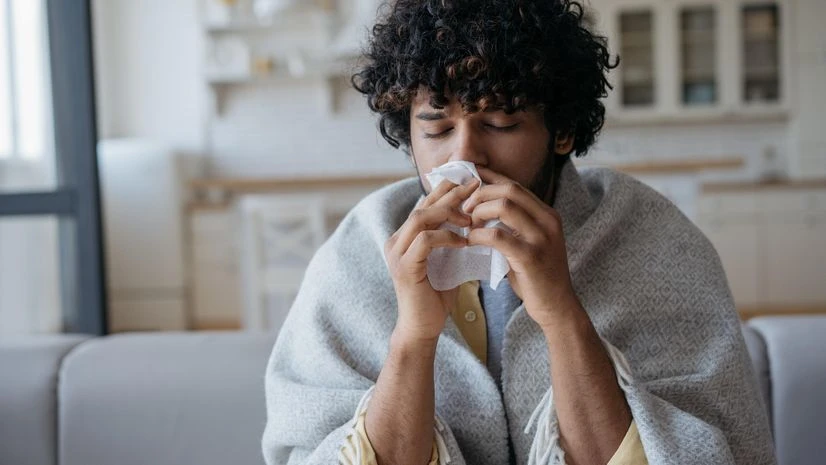If you have been coughing, sneezing, or experiencing a low-grade fever lately, you are not alone. Delhi-NCR has been seeing a rise in viral infections. While many people brush it off as “just the change of weather,” doctors are pointing to a seasonal flu surge that could impact you for a week—or more.
Is it flu, Covid, or something else? Doctor explain the overlap
According to Dr Rajiv Dang, Senior Director and HOD, Internal Medicine and Medical Director, Max Hospital, Gurgaon, multiple viruses are currently circulating—H1N1 (swine flu), seasonal influenza A & B, and even newer strains of Covid-19. Symptoms such as fever, sore throat, body ache, and cough often overlap.
“We have been seeing a steady flow of patients with flu-like symptoms. Some are testing positive for H1N1, others for Influenza A or B, and a small number for Covid,” said Dr Dang.
Why doctors recommend the flu shot every year
“Absolutely,” says Dr Dang. “It doesn’t guarantee you won’t fall sick, but it significantly lowers your chances of severe illness, hospitalisation, or complications like pneumonia.”
Also Read
Who should get the flu vaccine in India?
While the vaccine is safe for anyone above 6 months of age, doctors recommend it especially for:
- Children under 5
- Adults over 65
- Pregnant women
- People with diabetes, asthma, heart disease, or low immunity
- Healthcare workers (mandatory in many hospitals)
When to take the flu shot and how often
Because the virus mutates annually, you need one shot per year. According to Dr Dang:
“In India, the best time to get vaccinated is between September and October. This allows your body to build immunity before flu season peaks—typically January–March and post-monsoon.”
How flu vaccines work to protect you
Flu vaccines trigger the body’s production of antibodies within two weeks of the shot. These antibodies help your immune system fight off the virus and reduce the severity and duration of illness.
Which flu vaccines are available in India and their cost
Common quadrivalent vaccines (protecting against four flu strains) include:
- Fluarix Tetra (GSK)
- FluQuadri® (Sanofi)
- Influvac Tetra (Abbott)
Cost: ₹1,500 to ₹2,500 per dose at most private hospitals and pharmacies.
Can you still get the flu after vaccination?
“Yes. The vaccine might not prevent every case, but it makes the illness milder and recovery faster,” said Dr Dang. “Fewer chills, less fever, quicker bounce-back—it’s absolutely worth it.”
Should you get tested for flu or Covid if you have symptoms?
“If you’ve got a high fever, sore throat, or fatigue that lasts beyond a few days, get tested—especially if you live with elderly people, kids, or immunocompromised individuals,” Dr Dang advised.
“You must take proper measures and isolate yourself. Do not go around spreading your virus. Don’t go to work or anywhere else where others could catch an infection from you.”
He further recommended seeing a doctor and getting care before the symptoms worsen. For more health updates and wellness insights, follow #HealthWithBS

)